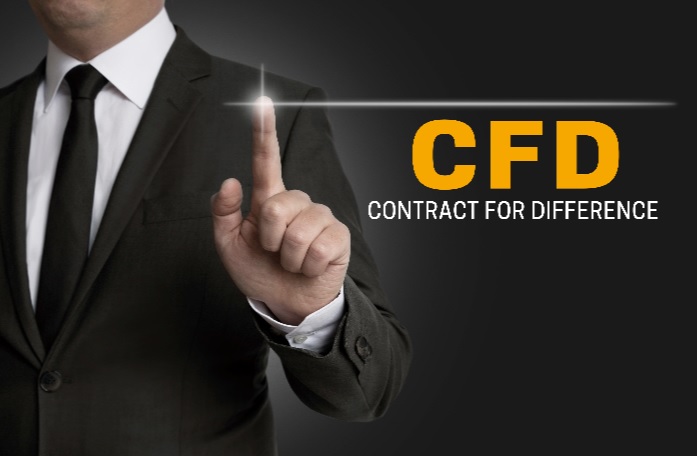In today’s dynamic trading landscape, the abundance of investment options can be overwhelming. Among the myriad choices available, Exchange Traded Funds (ETFs) and Contracts for Difference (CFDs) stand out as popular vehicles for traders and investors alike. However, making a well-informed decision necessitates a comprehensive understanding of these financial instruments. This article embarks on an in-depth exploration of ETFs and CFDs, shedding light on their unique attributes, advantages, and potential drawbacks.
Exchange Traded Funds (ETFs):
ETFs represent a versatile investment vehicle, offering ownership in a diversified portfolio of underlying assets. These assets encompass a wide spectrum, including equities, bonds, commodities, currencies, and more. Unlike traditional mutual funds, ETFs are traded on stock exchanges throughout the trading day. This continuous trading feature makes them highly liquid, allowing investors to buy and sell shares at market prices.
One distinguishing factor of ETFs is their structure, which divides ownership into shares. This structure enables investors to access a diversified portfolio without directly owning the underlying assets. As a result, ETF shareholders benefit from diversification, reducing the risk associated with investing in individual securities.
Moreover, ETFs generally have lower expense ratios compared to mutual funds. These cost efficiencies make ETFs an attractive choice for investors looking to minimize expenses while maintaining diversified exposure to various asset classes.
However, it’s essential to recognize that ETF shareholders do not have direct ownership of the underlying assets. Instead, they receive returns in the form of dividends, interest, or capital gains. This characteristic can affect the tax treatment of ETF investments, which may vary depending on the investor’s jurisdiction.
ETFs are suitable for a wide range of investors, from those seeking long-term investments to active traders looking for short-term opportunities. Their liquidity and cost-efficiency make them a favored choice in the investment landscape.
Contracts for Difference (CFDs):
Contracts for Difference (CFDs) are derivative instruments that allow traders to speculate on the price movements of underlying assets, such as stocks, commodities, currencies, and indices, without owning the assets themselves. CFDs offer traders the ability to profit from both rising and falling markets, making them a versatile tool in various market conditions.
The fundamental concept behind CFDs is that traders enter into contracts with brokers to exchange the difference in the price of an underlying asset between the contract’s opening and closing. This approach allows traders to leverage their capital, potentially magnifying gains (but also losses) compared to traditional stock trading.
CFDs offer several advantages, including:
-
Leverage: CFDs provide traders with leverage, allowing them to control a more substantial position size with a relatively small initial investment. While leverage can amplify profits, it also increases the risk of substantial losses, making risk management crucial.
-
Diverse Asset Classes: CFDs cover a wide range of asset classes, providing traders with access to global markets. Whether it’s trading stocks, commodities, forex, or indices, CFDs offer diverse opportunities.
-
Short-Selling: CFDs enable traders to profit from falling prices by selling assets they don’t own. This ability to short-sell is not readily available in all markets or with all financial instruments.
Despite these advantages, CFDs come with their own set of considerations:
-
Risk of Loss: The use of leverage in CFD trading magnifies both gains and losses. Traders can quickly lose their entire investment if the market moves against them.
-
Costs: Holding CFD positions overnight can result in financing costs, which can eat into profits. Additionally, spreads (the difference between the buying and selling price) can impact trading costs.
-
Regulatory Environment: The regulatory environment for CFD trading varies by region. Some jurisdictions impose restrictions on leverage, margin requirements, and other trading conditions to protect retail investors.
Comparative Analysis:
To comprehensively evaluate ETFs and CFDs, it’s crucial to consider key differentiators:
-
Ownership vs. Speculation: ETFs provide ownership in underlying assets, offering a passive investment approach. In contrast, CFDs are primarily speculative instruments that allow traders to profit from price fluctuations without ownership.
-
Diversification vs. Leverage: ETFs offer diversification benefits, reducing single-stock risk. CFDs, on the other hand, offer leverage, potentially amplifying both gains and losses.
-
Liquidity and Trading Hours: ETFs are highly liquid and can be traded during stock exchange hours. CFDs are also liquid, but they offer extended trading hours, allowing for more flexibility in executing trades.
-
Costs and Fees: ETFs generally have lower costs, including expense ratios and management fees. CFDs may involve financing costs, spreads, and overnight fees.
-
Regulatory Considerations: ETFs are typically regulated investment products. CFDs are subject to varying degrees of regulation depending on the region, which can impact trading conditions.
Conclusion:
In summary, the choice between ETFs and CFDs depends on your investment goals, risk tolerance, and trading style. ETFs provide diversified exposure to underlying assets with lower costs, making them suitable for long-term investors. CFDs, with their leverage and flexibility, cater to traders seeking short-term opportunities and are particularly useful for speculating on price movements.
It is essential to approach both ETFs and CFDs with a thorough understanding of their unique characteristics and risks. Effective risk management is crucial when trading CFDs due to the potential for amplified losses. Ultimately, the decision should align with your financial objectives and risk appetite, and it may be beneficial to consult with a financial advisor or conduct further research before making investment choices.

